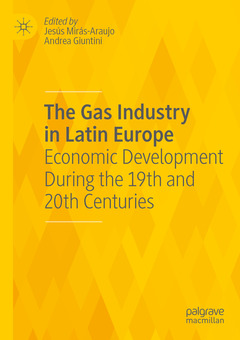Description
The Gas Industry in Latin Europe, 1st ed. 2023
Economic Development During the 19th and 20th Centuries
Coordinators: Mirás-Araujo Jesús, Giuntini Andrea
Language: English
Subjects for The Gas Industry in Latin Europe:
Publication date: 01-2024
192 p. · 14.8x21 cm · Paperback
Publication date: 01-2023
192 p. · 14.8x21 cm · Hardback
Description
/li>Contents
/li>Biography
/li>Comment
/li>
This book aims to place the development of gas resources in Latin Europe within a global perspective that takes into account the development of energy resources in the rest of Europe and the world more generally. It will be of interest to students and researchers working within energy economics and economic history.
The book forms part of the results of the research project ?Gas in Latin Europe: a comparative and global perspective (1818-1945)?, financed by the Ministry of Science and Innovation of the Spanish Government and ERDP Funds.
Andrea Giuntini is Associate Professor of Economic History at the University of Modena and Reggio Emilia.
Utilizes comparative methodology to provide insight into the energy transition
Contains empirical examples to highlight benefits and challenges of gas production
Places gas production within a socio-political context




